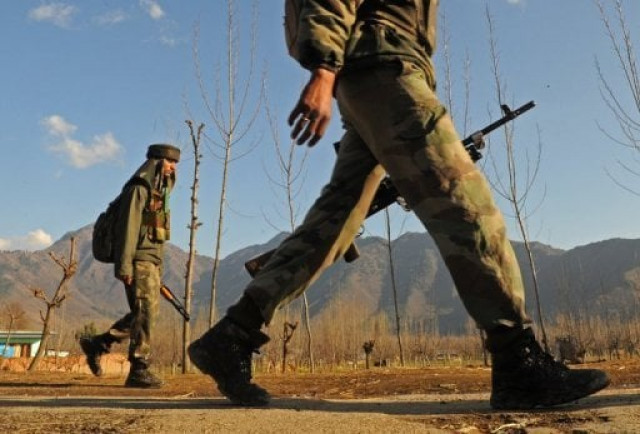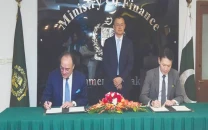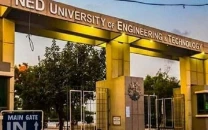Frustrated India may attack AJK, G-B after defeat in Ladakh: Masood
AJK president says diplomatic and strategic alignment exist between Pakistan and China

Azad Jammu and Kashmir (AJK) President Sardar Masood Khan on Friday warned that India can launch a military offensive on the liberated territory or Gilgit-Baltistan to vent its anger on Pakistan after tasting defeat at the hands of China in Ladakh.
“We should prepare for war because India’s agenda is aggressive, aggravating and destabilising after the Ladakh standoff. We should take no chances and prepare for all sorts of aggression from India,” he said while addressing a webinar on "China-India tension in Ladakh and its impacts on Kashmir".
Organised by Karachi Council on Foreign Relations, the webinar was also addressed by Senate's Standing Committee on Foreign Affairs Chairman Senator Mushahid Hussian Syed, Ambassador Mustafa Kamal Qazi, Chairman of the Karachi Council on Foreign Relations Ikram Sehgal and Dr Huma Baqai.
Masood emphasised that we should be prepared for an aggressive reaction from India, adding that Pakistan and AJK are particularly at risk because India may use this opportunity in the coming months of August or September to displace its anger and direction of that displacement would be towards Pakistan.
The AJK president termed bifurcation of Ladakh from Jammu and Kashmir state and declaring it as a union territory and threats of attacks on AJK, G-B and Aksai Chin to incorporate them into Indian union as an immediate trigger of a military clash between India and China.
"India's expansionist approach attempts to encircle China at the behest of US, and conspiracies to sabotage China's Belt and Road Initiative (BRI) and China Pakistan Economic Project (CPEC) have been the other causes of tension between the two countries," he added.
The AJK president said that besides Pakistan and the people of Jammu and Kashmir, China had serious reservations about India's unlawful actions of August 5, October 31 last year and April 2 this year.
"Besides threats by Indian Prime Minister Narendra Modi, Defence Minister Rajnath Singh and other members of the Indian cabinet, construction of roads, bridges and military infrastructure in Ladakh and other areas close to the Line of Actual Control fuelled the fire."
However, he maintained that China has given a firm, robust and befitting response to Modi regime on both diplomatic and military fronts.
Masood said that China took the Kashmir issue to the UN Security Council for the first time after 50 years, while Pakistan with the help of China, succeeded to convene three informal Security Council sessions on Kashmir. Later, China compelled the Indian Army moving towards Gulwan valley of Ladakh to retreat.
About the US support to India in a standoff with China, the AJK president said that in spite of the desire of the US establishment, President Donald Trump did not come forward to help India due to his own internal problems. Similarly, India could not get the expected support from Japan and Australia.
About the direct impact of Ladakh standoff on Kashmir, the state president said that India had been making fake claims for the last 72 years that Kashmir is its internal matter, but the Ladakh episode has once again internationalised the issue.
"Despite facing defeat at the hands of China in Ladakh, there will be no change in India's aggressive policy against Pakistan and Azad Kashmir, and it can play mischief at any time, for which we will have to remain alert and alive.
“Hindutva or the rise of RSS is an existential threat not only for Pakistan but for all of South Asia region, neighbouring East Asia, Central Asia and West Asia. So we should be prepared for those challenges as well.”
The AJK president said that in order to counter India, we need to remove our internal weaknesses by improving our economy, narrative building on the danger posed by the doctrine of Hindutva at national and international level and creating an environment of national unity and cohesion.


















COMMENTS
Comments are moderated and generally will be posted if they are on-topic and not abusive.
For more information, please see our Comments FAQ